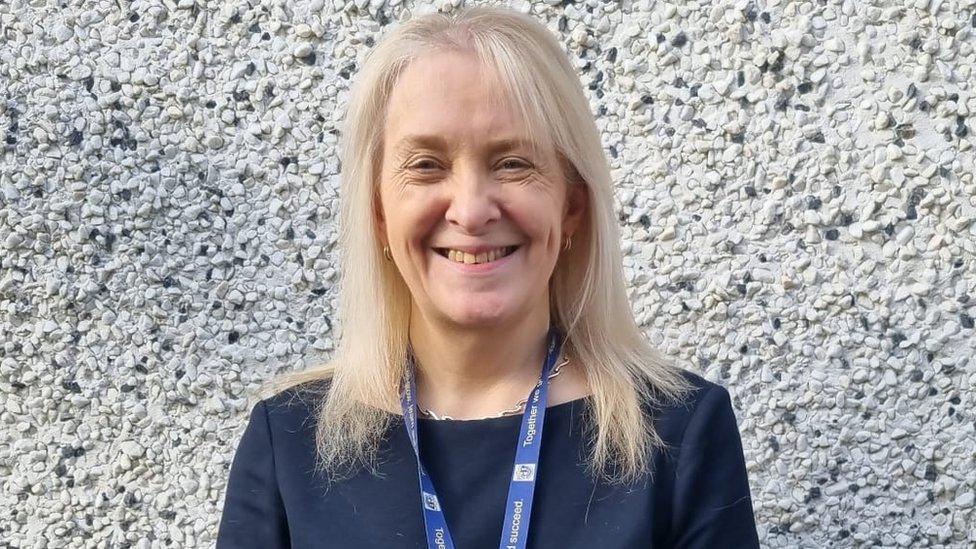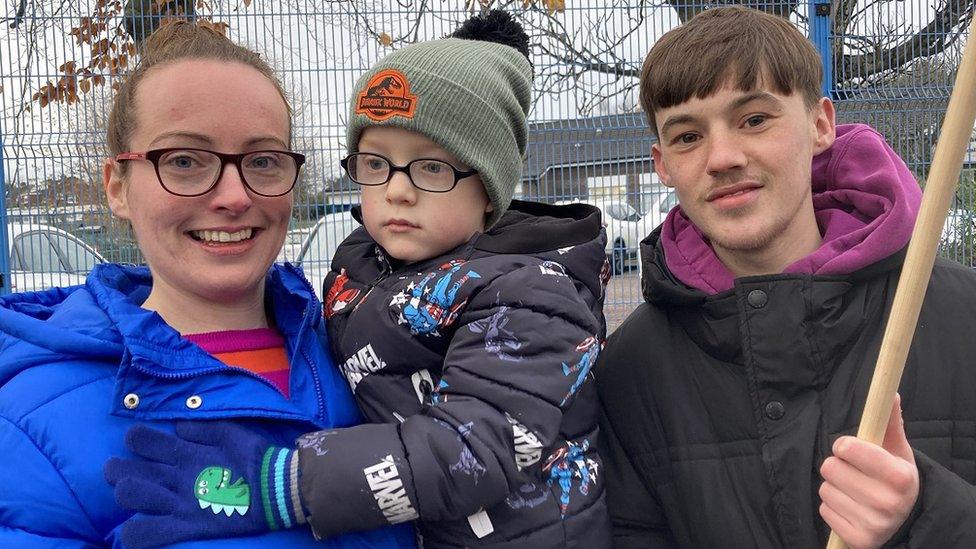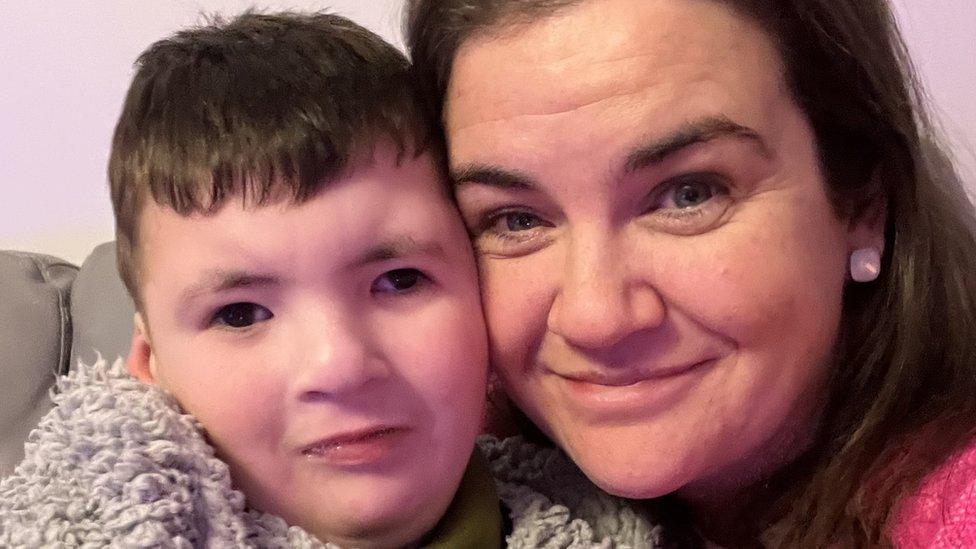Northern Ireland strikes: Some school staff begin strike action
- Published

Bus drivers, caterers, cleaners and classroom assistants in schools and special schools are all walking out over pay and conditions.
Major disruption is expected as a number of school staff in Northern Ireland begin strike action.
The eight-day walk-out by 800 members of the Unite union began on Wednesday.
Many bus drivers, caterers, cleaners and classroom assistants in schools and special schools are all walking out over pay and conditions.
It comes ahead of mass action on Thursday which will see tens of thousands of public sector workers striking across Northern Ireland.
One special school principal said school closures would hit pupils hard.
Previously, the Education Authority (EA) had made a request to unions for special school staff to come to work during the planned strike action, but the EA said this request was declined.
The industrial action is taking place on 17-19 January, 24-26 January and 1-2 February.
Unite said the eight-day action represented "an escalation of ongoing industrial dispute seeking implementation of a pay and grading review", which it said would "help address the chronic issue of low pay among education support staff".
In a statement, the EA said it recognised the challenges the strike action presented for schools, parents, carers and young people.
It said it was "making every effort to minimise disruption to services" and keep families and staff informed.
'Most vulnerable in society'
Caroline Clements, the principal of Rossmar Special School in Limavady in County Londonderry told BBC Radio Foyle's North West Today she was frustrated things had reached this point.
"I have 39 classroom assistants who belong to Unite the Union, so it does mean out of 13 classes in my primary department I have 12 completely closed and one partially opened," she said.
"At senior department level, I have two classes completely closed and seven open.
"I am frustrated, to be honest, I do feel the issue with pay parity, annual workload, operational issues for classroom assistants has been going on for a long period of time and it should've been sorted by now.
"The people that are being affected the most by this [strike action] are the most vulnerable in society."
'Pupils rely on routine'
Ms Clements said she had sympathy for parents who would need to explain to pupils, many of who relied heavily on routine, why they would not be attending school.
"It is very hard for pupils to be out of school for eight days - that is very hard to control and manage and will have detrimental effect," Ms Clements said.
"Pupils will be standing waiting for a yellow busses knowing it's a school day because they rely on that morning routine and it will not come for them - that's heart-breaking."

Caroline Clements said she was frustrated the strike could not be avoided
The school principal said she had sympathy for staff taking part in the strike action and believed it could have been avoided.
She said some of her classroom assistants had taken on second or third jobs to make ends meet.
"I really do feel that people in power should've had this issue sorted out a long time ago and the blame fully lies at their door," she said.
"Even when Stormont was operational this situation could have been sorted, but they've done nothing about it, these were issues that were there pre-Covid."
The EA said a "small number of schools" would be closed and disruption was likely for EA-run yellow buses, some school meals and cleaning services, as well as the availability of classroom assistants.
An EA spokesperson said engagement had been ongoing with trade unions.
- Published16 November 2023

- Published10 January 2024

- Published12 January 2024
